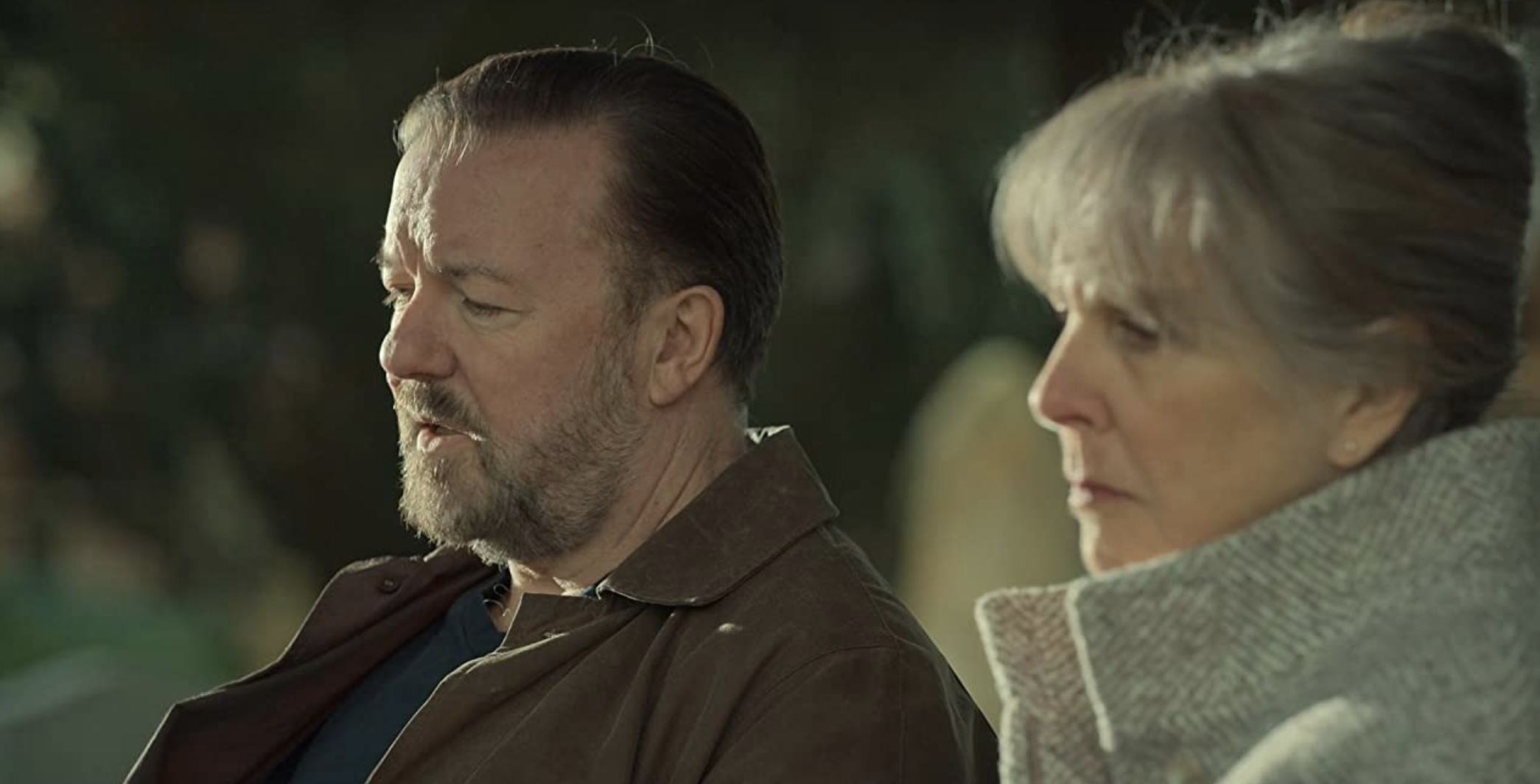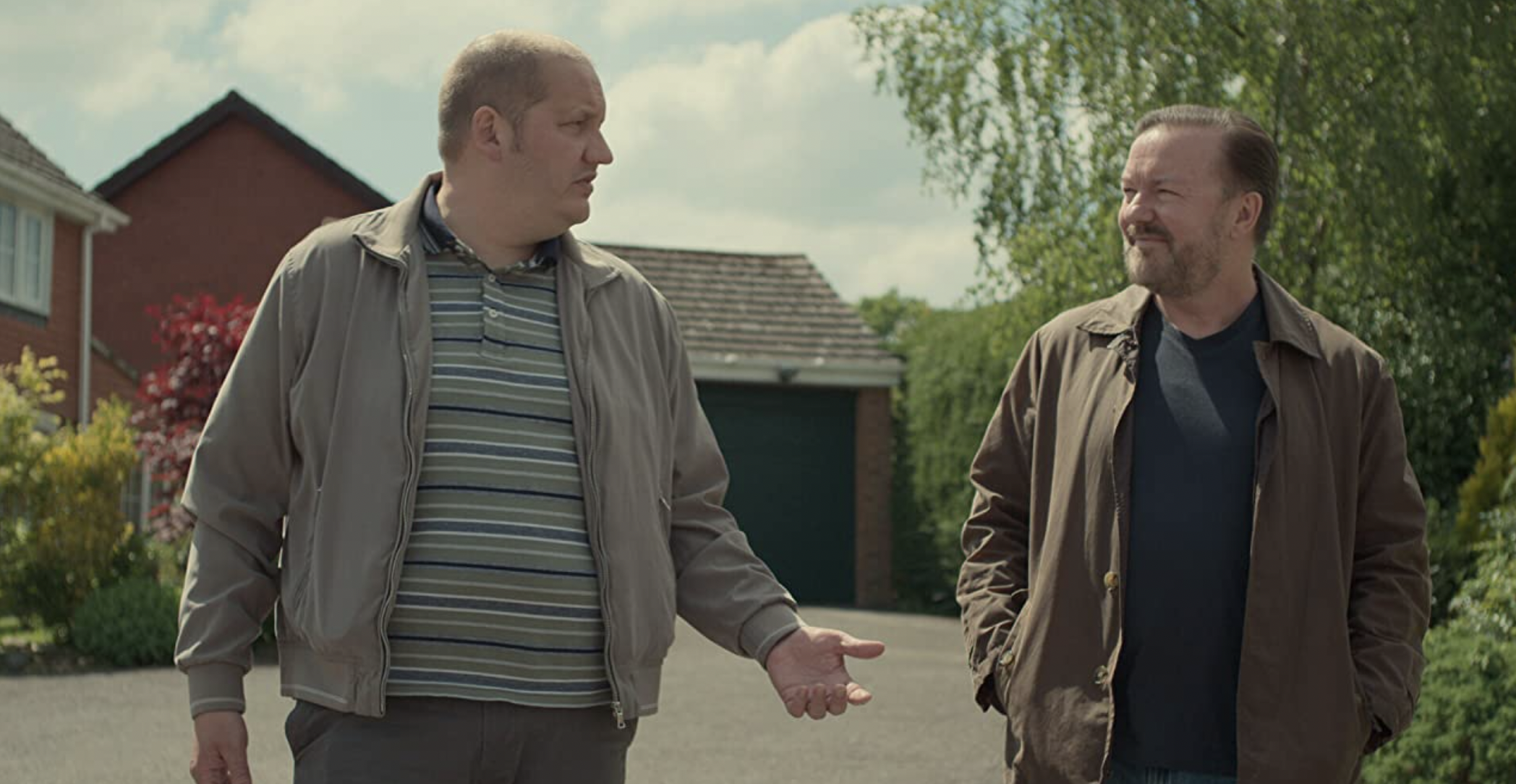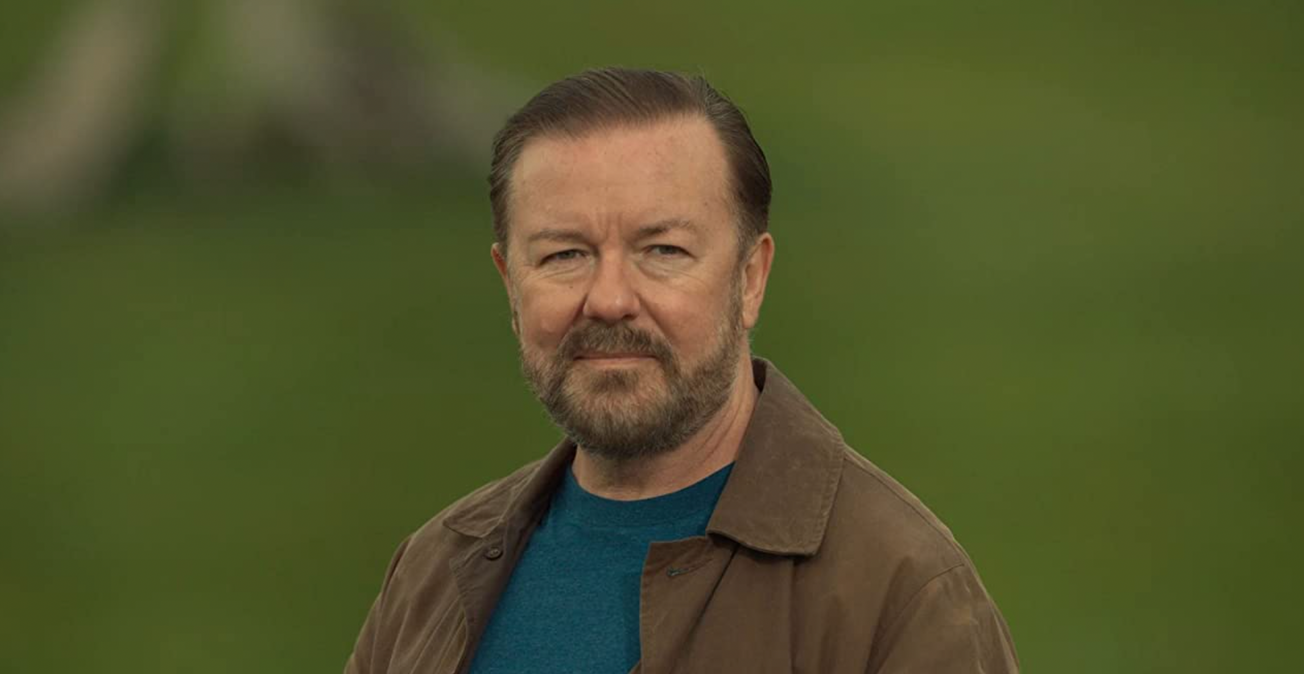By Becca Hurford, Third Year, Sociology
There are five stages of grief: denial, anger, bargaining, depression and acceptance. After life, as a show, is the embodiment of the grief process which is portrayed through Gervais’ character (Tony). The first two series show the anger and depression that Tony has faced after losing the love of his life, Lisa. Series 3 shows us acceptance.

Throughout the whole 3 series of After life, every episode has brought tear-jerking scenes, but series 3 attempts to show there is a light at the end of the tunnel, not just for Tony but for every character in the small town of Tambury. We see all of the characters go through different forms of hardship but connecting and establishing relationships through their troubles. The final chapter of this poignant series manages to express a vision of hope even when people are in their darkest times.
Series 3 begins with Tony still struggling with the death of his wife. At the beginning of the series, it feels as if we have picked up where we left off, but something has changed. The mood of the show has lifted. The humour is still there of course, it is Ricky Gervais after all. However, this time round the humour is used in a way to bring joy to the characters lives, rather than a way for Tony to make others feel as bad as him.

Raw emotion is displayed in every form, so make sure you have the tissues ready. A poignant scene in the series is when Tony and Anne discuss the nature of guardian angels. Anne is always displayed as a strong character, offering words of wisdom to Tony when he is at his lowest, but she brings comfort to Tony by telling him he is her guardian angel, who has helped her through hard times. This moment changes Tony’s and the audience’s perspective of the show for good. Instead of focusing on the negatives of life, Tony realises he can bring happiness to others through kindness, which is a lesson we can all learn.
The meaning of the show shifts and instead of having a glass half empty there is a glass half full approach, highlighting that without the bad in life you wouldn’t notice the good. Of course, the show wouldn’t be the same without some of Gervais’ dark humour thrown in, so that still remains.

The finale proves an enigma. Whether Tony is happy at the end of the series is left unanswered for the audience to decide. In marketing the final series Gervais explained how the ending is about real life, about moving on. And in a series that holds such a strong place in so many audiences' hearts, such an honest ending hits all the right notes.
Featured Image: IMDB
Do you feel After Life has successfully been laid to rest?









